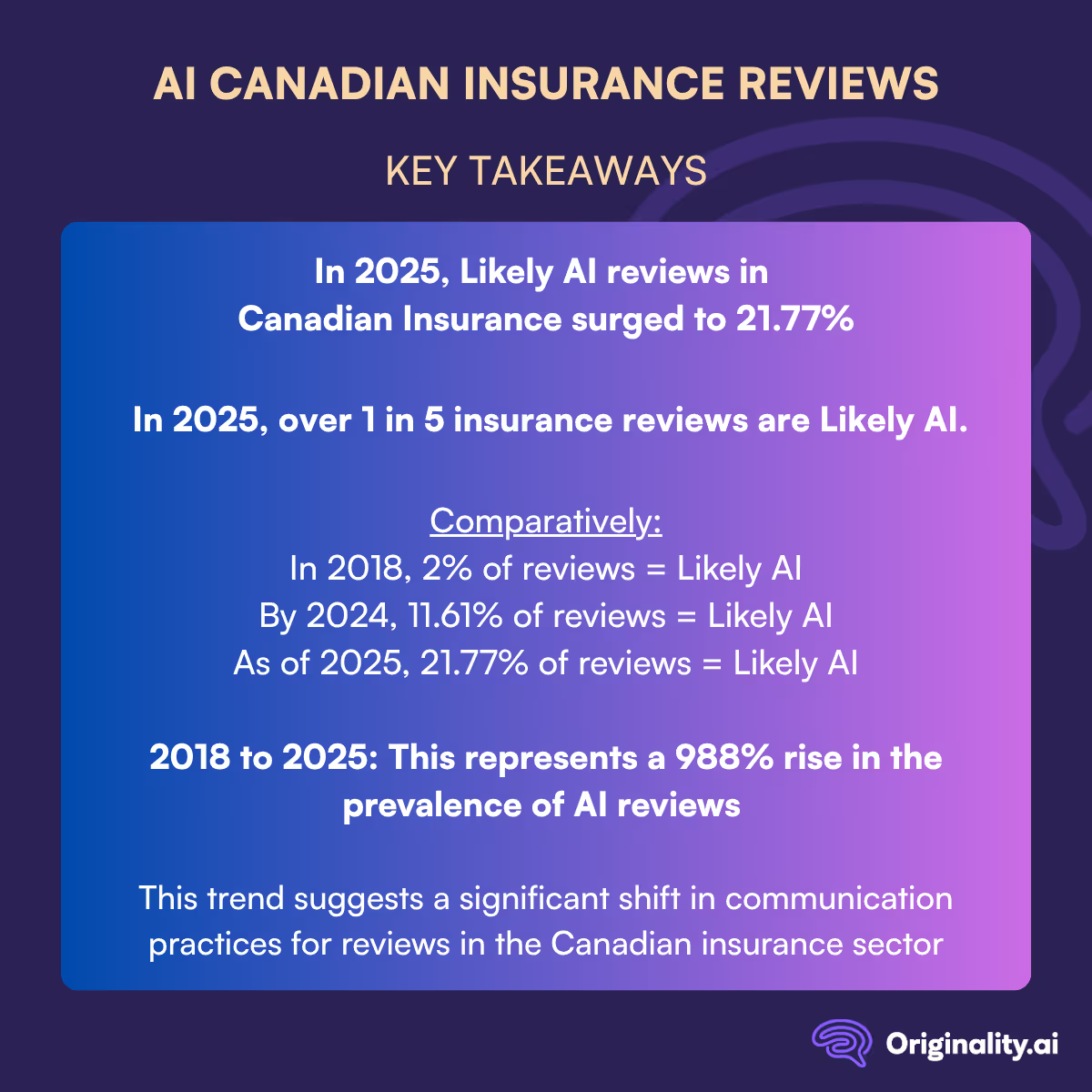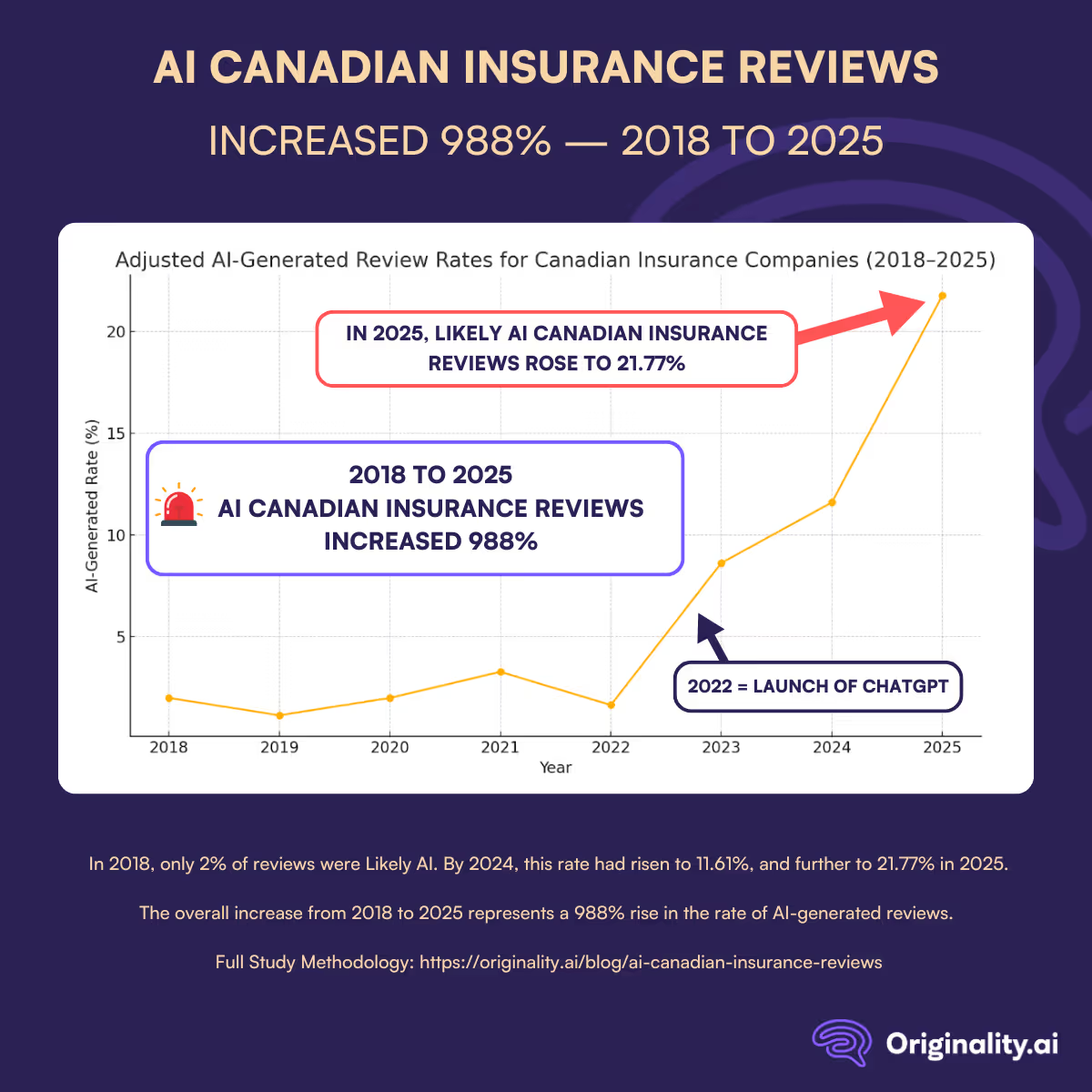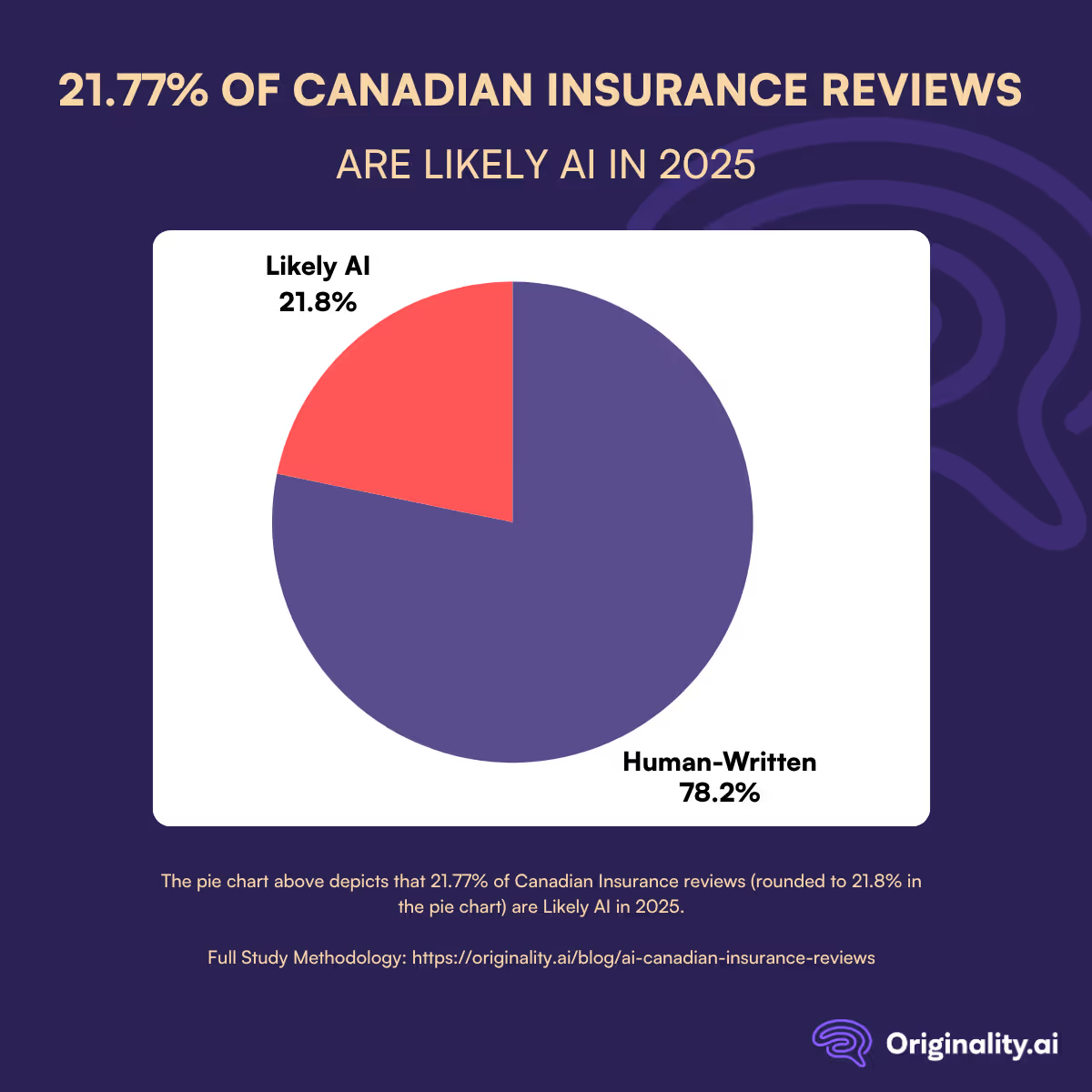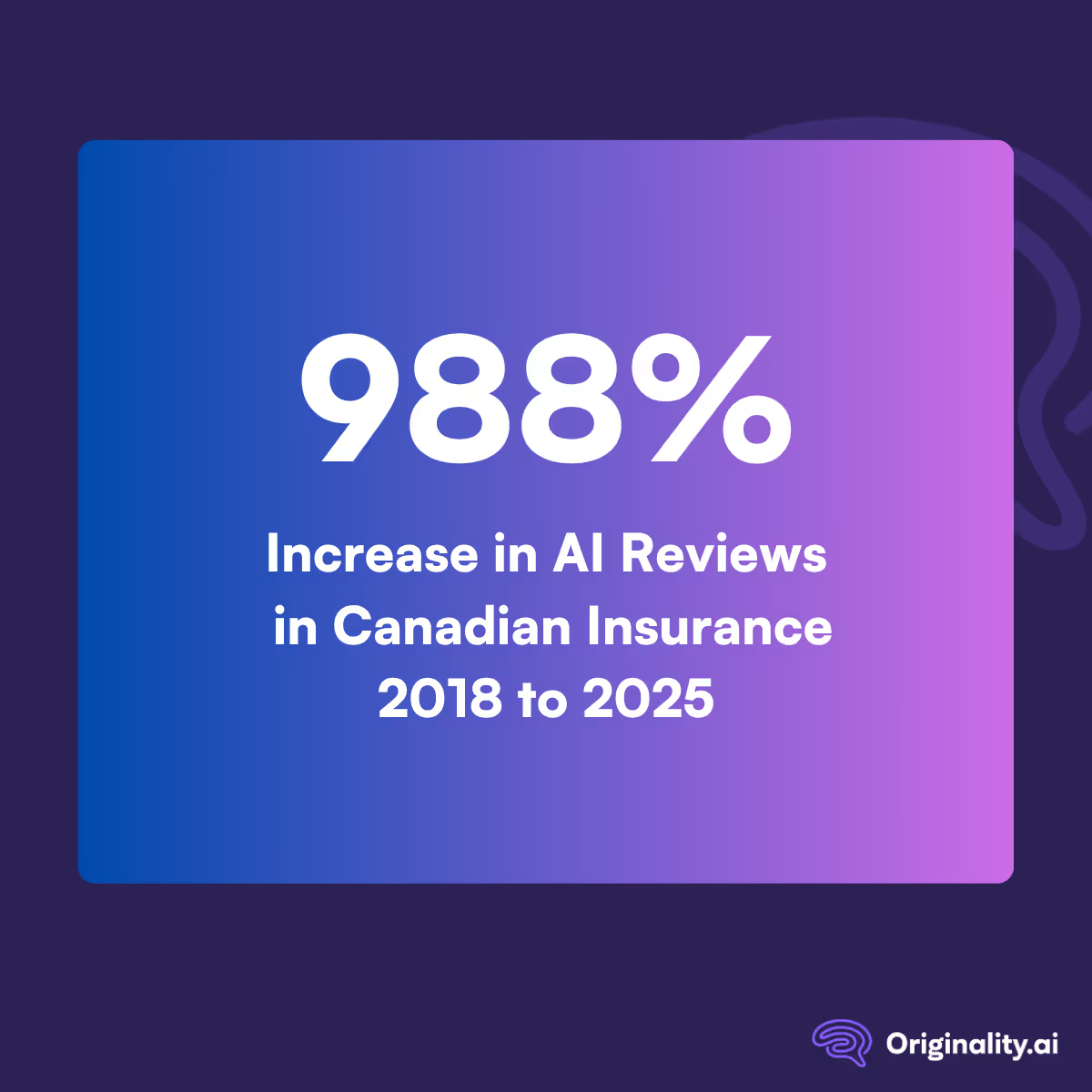The widespread availability of generative artificial intelligence (AI) tools has introduced a new dimension to online content creation, including customer reviews.
This has significant implications for industries where consumer trust is paramount, such as the insurance sector.
In Canada, insurance companies occupy a critical role in the financial well-being and risk management of individuals and businesses alike.
From auto and home to health and life insurance, policyholders often rely on online reviews to make informed decisions about which providers to trust.
However, the increasing presence of AI reviews across a number of platforms, including Canadian ‘Big 5’ Banks, Canadian Online Banks, and Glassdoor, raises important concerns.
This study aims to analyze the impact of AI on consumer reviews for Canadian insurance companies.
This study investigates the prevalence of AI-generated content in consumer reviews of Canadian insurance companies between 2018 and 2025.
By examining these aspects, this study aims to offer new insights into how synthetic content is redefining public perception and digital engagement in the Canadian insurance sector.
Our analysis centers on these guiding questions:
The findings are intended to inform both consumers and regulators about the growing need for transparency, accountability, and trust in online reviews.
This trend suggests a significant shift in communication practices for reviews in the Canadian insurance sector.


The analysis of consumer reviews for Canadian insurance companies shows a clear and sustained increase in AI-generated content over the observed time period.
The overall increase from 2018 to 2025 represents a 988% rise in the prevalence of AI-generated reviews.
This sharp upward trajectory highlights the rapid integration of AI tools in consumer-facing digital platforms and signals a fundamental change in how public perception is shaped online.

The growing presence of AI-generated reviews presents both opportunities and challenges for insurers.
While AI-generated tools may enhance linguistic quality and accessibility, their use in customer feedback introduces questions about authenticity, transparency, and influence on purchasing behaviors.
These findings underscore the need for monitoring tools and content moderation strategies that can help preserve the integrity of online review ecosystems in trust-based industries like insurance.

The significant rise in AI-generated content within consumer reviews of Canadian insurance companies presents a notable shift in how feedback is being produced and consumed online.
In a sector like insurance, where customers rely heavily on reviews (given the complexity and long-term nature of insurance contracts), the presence of synthetic content poses important ethical and regulatory concerns.
If a growing share of reviews are generated by AI rather than real customers, the credibility of review platforms could be undermined, and genuine consumer voices may be diluted.
This raises concerns not only for customers making informed decisions but also for companies attempting to maintain fair competition and transparent reputations.
The findings show a 988% increase from 2018 to 2025 in Likely AI insurance reviews, underscoring a rapid evolution in the digital feedback landscape.
While AI-assisted writing offers benefits such as improved clarity and accessibility, its unchecked presence in consumer review platforms presents risks to transparency and trust.
As generative AI continues to evolve and its use becomes more widespread, it is critical that review platforms, regulators, and businesses implement mechanisms for disclosure, verification, and moderation.
In a trust-dependent industry like insurance, preserving the authenticity of customer experiences must remain a priority.
Wondering whether a post or review you’re reading might be AI-generated? Use the Originality.ai AI detector to find out.
Read more about the impact of AI:
This study analyzed the prevalence of AI-generated reviews in the Canadian insurance sector using data from public review platforms and the Originality.ai AI detection tool. The process had two main phases: (1) data collection via web scraping and (2) AI detection using the Originality.ai API.
Data Collection
Consumer reviews of Canadian insurance companies were scraped from Trustpilot Canada using a Python script.
The script supported resumable scraping and included time delays to avoid server overload, producing a large, timestamped review dataset.
AI Detection
Reviews (50+ words) were scanned with Originality.ai, which returned a binary classification and confidence score. A Python script processed each review, logged the outcome, and saved results in batches of 500 to ensure data progress was retained.
Upon completion, the final output was stored in a CSV file containing the review date, company, review content, AI score, AI classification, and scan status.
This structured, scalable method enabled a comprehensive assessment of AI-generated review content in the Canadian insurance industry.

According to the 2024 study, “Students are using large language models and AI detectors can often detect their use,” Originality.ai is highly effective at identifying AI-generated and AI-modified text.